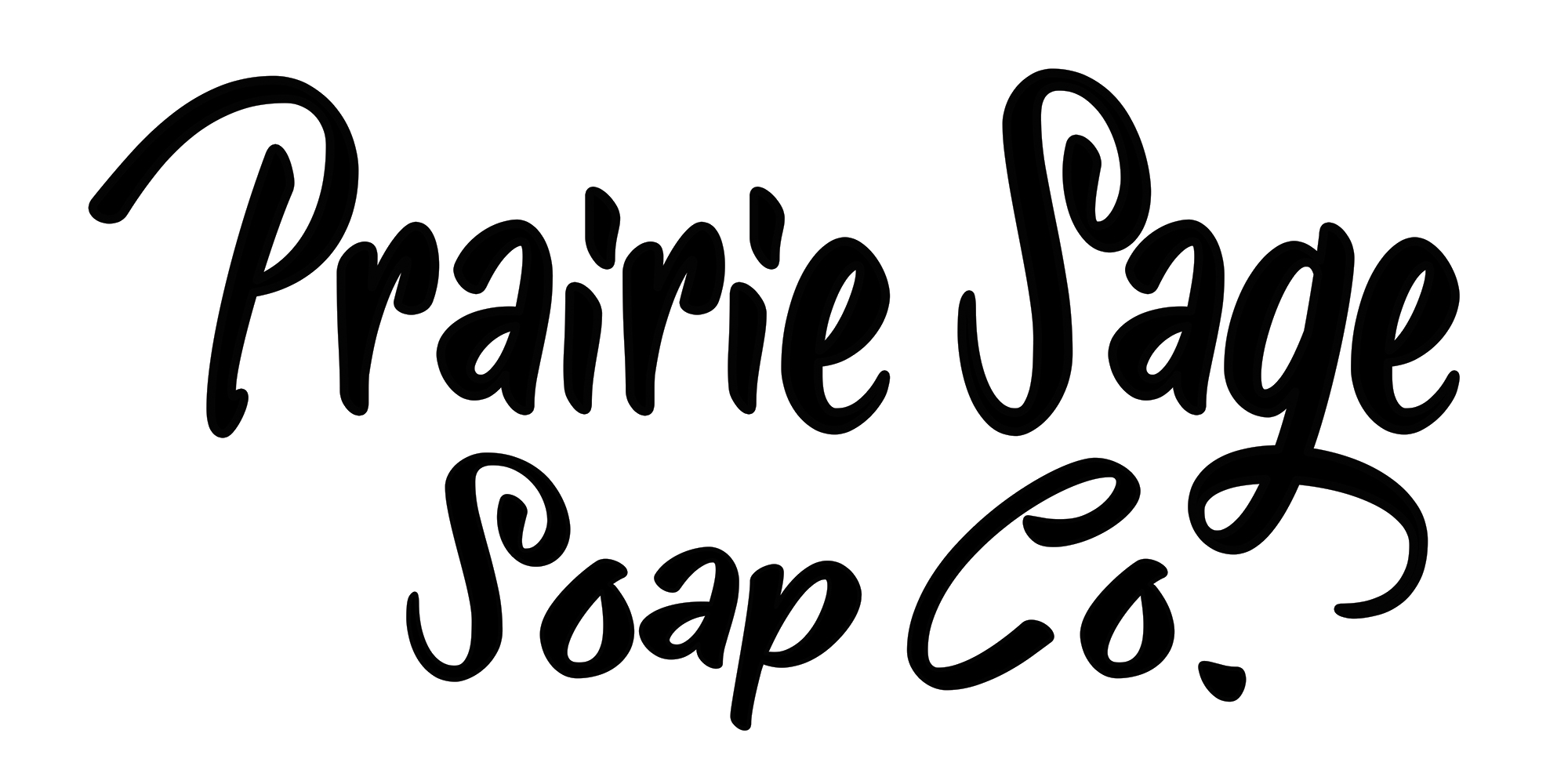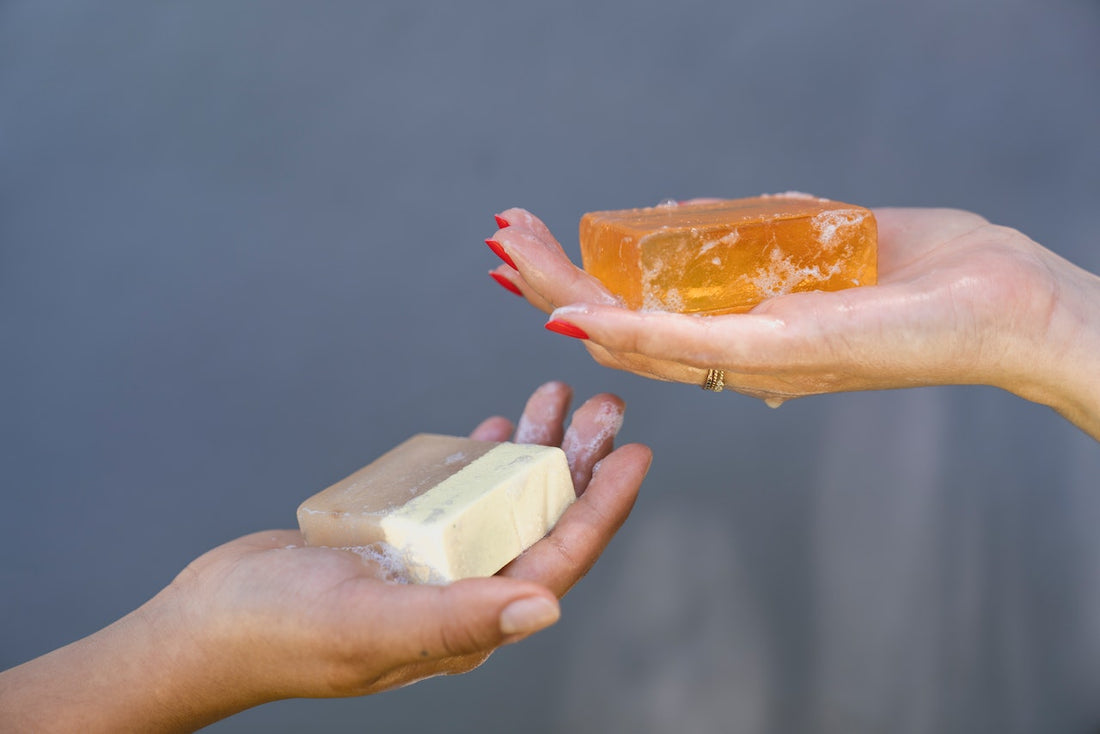More people are starting to realize the potential risks of exposing their skin to the chemicals found in commercial soaps. Some of the ingredients in commercial products can dry your skin out, cause allergic reactions, and even increase the risk of cancer or organ damage.
Many handmade soaps are made with natural ingredients instead of harmful chemicals and synthetic detergents that strip moisture from your skin.
Here’s what you should know about handmade soap and how it compares to commercial soap.
Defining Handmade Soap vs. Commercial Soap
Handmade and commercial soaps are both types of cleaning detergents with active agents that help trap dirt and remove it from the surface of your skin or an object. However, there are major differences between the two.
What Is Handmade Soap?
Handmade soap is made by hand, typically in small batches. Many options are made with natural ingredients, such as vegetable oils and butter. You can also find handmade soaps with a variety of essential oils, such as lavender or mint.
A high level of artistry is used to make handmade soap. We rely on a process called saponification, which is the chemical reaction that occurs when we combine lye with water and oils.
What Is Commercial Soap?
Commercial soap is mass-produced. Unlike handmade soap, commercial soap is more likely to include synthetic ingredients. Most commercial soap products have synthetic colorants, fragrances, preservatives, detergents, and lathering agents.
In fact, some commercial soap products may not legally be called “soap”, as they don’t meet the legal definition set by the Food and Drug Administration (FDA).
Comparing Ingredients

Comparing the ingredients in commercial soap and handmade soap should help illustrate one of the big differences between the two. Commercial options tend to have a long list of ingredients. Here’s a closer look.
Commercial Soap Ingredients
Commercial soap ingredients include more than just natural compounds. They’re made with a long list of ingredients created in a lab. This includes:
- Phthalates
- Parabens
- Petrochemicals
- Synthetic fragrances
- Artificial coloring
The parabens, phthalates, petrochemicals, and various synthetic fragrances and coloring agents found in commercial soaps are not all safe for your skin or the environment. Some of these potentially toxic substances can produce seriously harmful effects.
The ingredients used in commercial soaps are known to dry out your skin. Some of the ingredients have also been linked to more serious health risks.
Phthalates are additives developed to make plastics more durable. They’re also linked to cancer. Parabens are preservatives found in commercial soap, shampoo, and other cosmetic products. Petrochemicals are chemicals that come from refined petroleum and are not considered safe for humans.
Handmade Soap Ingredients
Handmade soap products have fewer ingredients compared to commercial soaps. It’s also common for handmade options to stick to natural ingredients as much as possible.
Instead of synthetic ingredients, our handmade soaps feature:
- Glycerin
- Healthy oils
- Essential oils
- High-quality fragrance
Glycerin is a natural ingredient that helps your skin retain moisture, as it absorbs water from the air. Healthy oils are also used in the soapmaking process. Coconut oil, palm oil, and olive oil especially are frequently used in handmade soaps. Essential oils are included for additional therapeutic value and to give the soaps natural fragrances.
These are natural, plant-based ingredients, which makes them better for your skin. You get a nourishing, moisturizing product without the health risks that come with commercial soap.
How It’s Made

Along with different ingredients, handmade soap and commercial soap are made with different processes. One is mass-produced while the other is made on a smaller scale.
Commercial Soap Production
Commercial soap production involves the mass production of soap in large factories. Companies generate a significant amount of waste and pollution to produce tens of thousands of tiny bars of soap each day.
The combination of harmful chemicals and power-hungry machines has negative environmental impacts. Soap factories contribute to the pollution of the surrounding environment and use up valuable resources.
Handmade Soap Production
Instead of large factories, handmade soap production is often completed in smaller facilities with smaller batches. Some soap makers make soap at home.
When making soap by hand, we first prepare a large work area, typically outdoors, as the use of lye can release harmful fumes into the air. The lye is poured into the water.
Healthy oils, such as olive oil, coconut oil, and castor oil, are combined in a large mixing bowl. After the lye and oils reach the same temperature, the lye solution is added to the oil mixture and poured into a mold. The mixture of lye, water, and oils triggers the saponification process, which converts the ingredients into soap.
Handmade soap has a very minimal carbon footprint. Soap makers may use a hot process or a cold process. With the cold process, the soap requires curing for several weeks until it reaches the desired hardness and consistency.
Making the Decision
If you still can’t decide between commercial soap and handmade soap, take a moment to compare the advantages and disadvantages of each.
Commercial Soap Pros and Cons
The main disadvantages of commercial soap are related to the use of synthetic chemicals, fragrances, and preservatives. The ingredients may dry and irritate your skin. Commercial products also offer fewer customization options.
Despite several significant drawbacks, some commercial soaps still offer a few advantages. First, you’re likely to spend less on commercial soap. You can find commercial soap that is specially formulated to improve the health of your skin.
While many commercial soap products are packed with synthetic ingredients, you can also find options made with organic and eco-friendly ingredients. These natural soap bars are often costly but are less likely to contain harmful ingredients. They also help eliminate plastic waste.
Handmade Soap Pros and Cons
Handmade soap offers greater eco-friendliness and a healthier option for your skin. Unlike most commercial soap products, handmade options are made with natural ingredients. There are also many customization options, from lavender-scented soaps to soap made with finely ground pumice.
One of the few drawbacks to buying handmade soap is the cost, but you tend to get what you pay for. By spending just a little more, you can get a more natural product made with care and love.
Conclusion
Natural soap offers many benefits over commercial soap, including better skin health and overall well-being. Many commercial products contain harmful ingredients known to increase the risk of various health problems, from skin irritation to cancer.
Handmade soaps are free of the synthetic chemicals present in many of the best-selling commercial soaps.
If you want to try handmade soap for yourself, we have a wide range of options for you to choose from. Browse our collection of handmade olive oil soaps. All options are cruelty-free, phthalate-free, and paraben-free.





